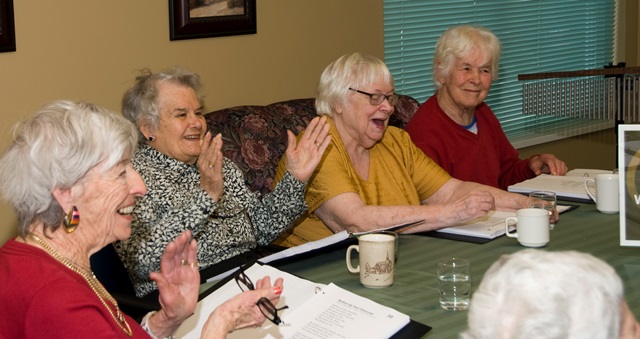By Michelle Fleming
THE ISSUE
Social isolation is on the rise in our growing aging population, particularly among those living in residential care. Better strategies are required to counter its negative consequences. There are established links between loneliness, social isolation, and negative health outcomes – including depression, dementia, increased mortality, and higher health care costs. Studies show that 55 per cent of residents in care homes experience loneliness.
There are different reasons why people move. A health crisis often precipitates someone’s move into residential care. For many new residents, this transition is a painful and lonely time. These challenges are exacerbated for those living with dementia.
There are undoubted benefits of residential care for people who require physical care, however, research highlights concerns about residents’ psychosocial well-being. An American study found evidence that programs provided tend to be inaccessible or inappropriate for many residents, leading to low participation rates. Another study explained that 45 per cent of residents with dementia participated in few or no activities, 20 per cent participated only occasionally, and 12 per cent participated in activities that were inappropriate for their needs.
These numbers show a need for meaningful social engagement that offers opportunities for residents to deepen their social connections and re-establish a sense of purpose. Peer support is an effective approach to alleviating loneliness and depression.
THE SOLUTION
Peer support groups, despite known benefits, are rarely used within senior living. Founded by Kristine Theurer in Vancouver, Java Group Programs are the first standardized peer support interventions designed to address the critical rates of depression and loneliness in senior living. The Java Music Club is a weekly peer support group for residents, including those living with mild to moderate stage dementia. The program is based on the concept that people are happiest when they are helping one another. Java Memory Care is a vital adaptation for those living with moderate to advanced dementia.
In an effort to enhance residents’ quality of life, many Canadian care homes have introduced Java programs. They have seen residents regain their love of life and sense of purpose, build new relationships and develop increased respect for their peers.
Recently, a grant from the Centre for Aging + Brain Health Innovation has added 35 locations across Ontario, allowing more residents to benefit from these programs. Interactive training workshops, coaching sessions, and public webinars are woven together to elevate facilitators’ skills through knowledge mobilization. A portion of the grant also advances our overall understanding of the benefits for residents through rigorous research. Dr. Renate Ysseldyk from Carleton University is working with residents and staff at Riverstone Retirement Communities and Élisabeth Bruyère Residence to understand their experiences.
Social isolation of vulnerable populations is a universal issue. The Java Group Programs aim to reduce social isolation among people who live in residential care. When it comes to Java, improving residents’ quality of life will always drive program implementation, research, and the design of skill building opportunities.
Michelle Fleming, Knowledge Broker at the Bruyère Centre for Learning, Research and Innovation in Long-Term Care (CLRI) leads the implementation of The Power of Peer Support: Reducing Social Isolation in Residential Care. This project is a collaboration between the Bruyère CLRI, Java Group Programs, Carleton University’s Department of Health Sciences, and Bruyère Continuing Care’s Therapeutic Support Services. It is funded by the Centre for Aging + Brain Health Innovation, Carleton University and the Government of Ontario through the Bruyère CLRI. For more information, visit the CLRI website.


